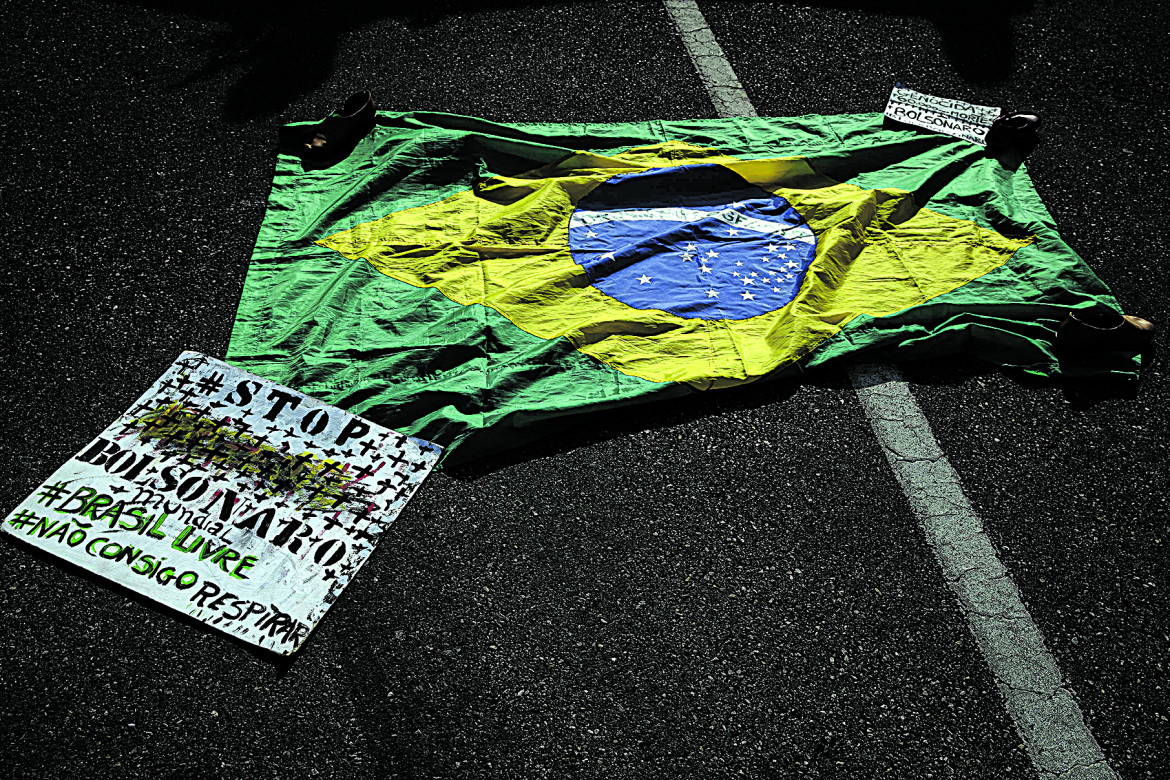Analysis
With conservatives dominant, Brazil will vote for the first time since Bolsonaro
Two years after the presidential elections the country returns to the polls for municipal elections. But because of the pandemic, the government is on the ballot.

In Brazil, people are going back to the polls for the first time since Bolsonaro arrived. The country’s 148 million voters are called to vote on November 15 to choose the prefeitos (mayors) and vereadores (councilors) of Brazil’s 5,570 municipalities.
Even though these are municipal elections, the confrontation between the political forces is centered on the major issues that are stirring the country: the health emergency and pandemic management, the economic crisis and the measures taken to deal with it. The conservative wave that had brought the former army captain to the presidency of the Republic in 2018 has not stopped, but it must come to terms with the health and social catastrophe that is affecting the country and the profound changes in collective and individual life.
There are 545,000 candidates for mayors and councilors, with the right-wing forces putting up the largest number of lists and candidates. These are atypical elections, without the traditional propaganda initiatives that animate Brazilian municipalities at every round of voting. Propaganda and the search for electoral support are taking place through social networks, with massive digital communication that keeps the voters mobilized. Voting in Brazil is mandatory, but in the last two polls, abstentionism had increased, with 20% of voters not going to the polls. Now, the pandemic may accentuate the phenomenon.
The focus is on the big cities, because it will be the results of the most important municipalities that will give the measure of the effects produced by Bolsonaro and the pandemic. São Paulo and Rio are the special areas of focus. In the city council of Rio, Marielle Franco was elected in 2016 with 46,000 votes. She was assassinated in March 2018 by a gang of militiamen who cultivated close relationships with the Bolsonaro family. According to a study carried out for the Fluminense Network of research on violence, the militias continue to run rampant, controlling a quarter of the neighborhoods and 60% of the territory and managing to strongly influence these elections. Voting freedom and the protection of candidates are issues of dramatic importance in the Rio area.
President Bolsonaro is actively participating in the election campaign, even though he does not have a party in the race. His Alliance for Brazil, founded after leaving the PSL, from whose ranks he was elected, is not running in these elections. He is expending a lot of effort in supporting some candidates belonging to the right-wing block, such as Celso Russomando in Sao Paulo and Marcelo Crivella in Rio, an Evangelical pastor and current mayor of the city. In his last electoral tour in the state of Pernambuco in northeastern Brazil, the president made an appeal to choose mayors and councilors who “have God, country and family in their hearts.”
Bolsonaro’s voting instructions and appeals are aimed at strengthening a broad conservative camp on which to rely for the presidential elections in 2022. Public safety in the cities is the other theme that the president is strongly agitating for, having no positive data to boast about in the economic and social field. Bolsonaro’s stance on security has favored the presence of a record number of candidates from the armed forces, military and civilian police and other areas of security in right-wing parties.
According to the data from the Superior Electoral Court, there are 8,730 candidates coming from these fields (more than 21% more than in previous elections), who, invoking “law and order,” are running on the slogan of strengthening the “bancada da bala” (tip of the bullet).
The Evangelical church, which is expanding its presence in urban and rural areas of the country, is also playing a full role. Having played a decisive part in Bolsonaro’s election, it is now strongly committed to supporting those candidates who are sensitive to its entreaties.
The Left is coming to these elections in a weakened condition, without a social opposition capable of hindering the process of democratic corrosion being carried out by the current government. But the loss of support for Lula’s PT had manifested itself before the advent of Bolsonaro. The 2016 municipal elections, in an environment marked by Operation Lava Jato, the accusations against Lula and the impeachment of President Dilma, had registered a 60% drop in the number of PT candidates elected to the office of mayor compared to 2012, from 644 to 255. Moreover, the PT won none of the mayoral seats in any of the 100 biggest cities in Brazil. This is a serious crisis that has seen the largest left-wing party on the defensive in recent years, both in the courtrooms, in Congress and the city halls.
In view of the upcoming elections, there have been numerous appeals to form a broad front with all the forces of the left and the social movements, but it hasn’t been possible to propose common candidates that would make it onto the ballot in most of the municipalities. However, there is hope for a reversal of the trend, with a repositioning of the electorate. The Gramscian saying about “the pessimism of reason and the optimism of the will” has often resonated among the Brazilian left in recent weeks.
The Indigeous communities, despite all the difficulties linked to the pandemic, also see these elections as an opportunity to increase their representation in city councils. Their presence aims to safeguard both territories and health. There are 2,194 indigenous candidates for municipal councils, a third represented by women, with an increase of 28% compared to the 2016 elections, when 167 Indigenous councilors were elected.
There are many interests at stake in this great Latin American country, and in these municipal elections as well, the fragile Brazilian democracy is looking for a way out of Bolsonarism and the pandemic.
Originally published at https://ilmanifesto.it/in-brasile-il-primo-voto-dopo-era-bolsonaro/ on 2020-11-08
